Using the Liberal Arts to Explore and Heal from Moral Distress
Mach 24, 2023 | Gasson 100 | Registration
This event is open to Boston College students studying nursing, theology, social work, and education, as well as other Boston College faculty, staff, and students interested in learning more about moral distress. Nursing students will have the opportunity to earn Continuing Education (CE) credits for participating.

The goal of the conference/workshop is to give graduate students in nursing, theology, and education (as well as any other interested students) the opportunity to learn about moral distress and how tools from the liberal arts (e.g., literature, writing, music, and spirituality) may facilitate the exploration and mitigation of it. The term “moral distress” was coined by Andrew Jameton in 1984 to describe the experience of nurses who felt they knew the right thing to do for their patients, but were constrained from taking the right course of action, largely because of institutional constraints. The term took hold and has now been used to describe this phenomenon in other providers beyond nursing and across diverse healthcare settings. Our event is intended to address this critical issue as many graduate students in the Boston College community may have experienced it, or will be experiencing it, in their roles as nurses, chaplains, teachers, and social workers as a result of the ongoing effects of the global pandemic.
The sessions in the one day conference/workshop will be led by Boston College faculty experts, as well as current students. These informative and experiential sessions will build on insights from empirically based studies that suggest that the arts and humanities are resources for healing from moral distress. The event will be a contribution to the existing and growing body of work surrounding moral distress, given the use of the arts and humanities in innovative and novel ways to explore and address moral distress. The event will contribute to the Boston College community by addressing an issue that frontline workers in our community may be facing or may face in the future.
This is event is generously funded by a Major Grant from the Boston College Institute for the Liberal Arts.
Schedule and RegistrationFriday, March 24, 2023 | Gasson 100 | Registration | |
|---|---|
| 8:30 am-9 am | Registration and Breakfast (Gasson 100) |
| 9:00 am-9:15 am |
Welcome and Opening Remarks (Gasson 100) Andrea Vicini, SJ
|
| 9:15 am - 10:30 am |
Foundations of Moral Distress (Gasson 100) Melissa Uveges, Kate Jackson-Meyer, and Aimee Milliken
|
| 10:30 am-11:00 am | Coffee Break |
| 11:00 am-12:00 pm | Literature and Writing as Ways to Identify and Heal from Moral Distress Participants can choose 1 of 2 breakout sessions:
|
| 12:00 pm-1:00 pm | Lunch (Gasson 100) |
| 1:00 pm-2:00 pm |
Song and Dance as Languages and Paths for Exploring and Recovering from Moral Distress (Gasson 100) Performances by Boston College Common Tones & Boston College Dance Ensemble
|
| 2-2:15 pm | Break |
| 2:15 pm-3:15 pm | Meditation and Spirituality as Avenues to Acknowledge and Repair Moral Distress Participants can choose 1 of 2 breakout sessions:
|
| 3:15 pm-3:30 pm | Short break |
| 3:30 pm-4:30 pm | Reception and Reflection (Gasson 100) Melissa Uveges, Kate Jackson-Meyer, and Aimee Milliken |
Co-organizers
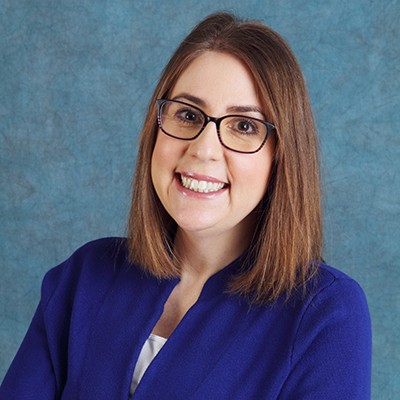
Kate Jackson-Meyer, Ph.D
Kate Jackson-Meyer, Ph.D., is a postdoctoral fellow at the Human Flourishing Program at Harvard University. Her research focuses on issues at the intersection of fundamental moral theology and social ethics. Her current research investigates the problems of tragic dilemmas, moral distress, and moral injury infields such as bioethics, war, and peacemaking in order to analyze the complexity of moral decision-making and the prospects for community-based moral healing. She is the author of Tragic Dilemmas in Christian Ethics (Georgetown University Press, 2022). She earned a Ph.D. in theological ethics from Boston College, a M.A.R. in ethics from Yale Divinity School, and a B.A. in biology and religion from the University of Southern California.
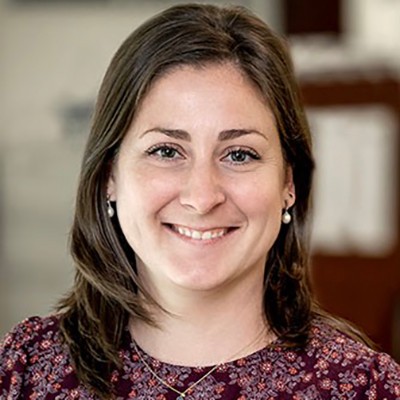
Aimee Milliken, Ph.D., RN, HEC-C
Aimee Milliken, Ph.D., RN, HEC-C, is an associate professor of the practice at the Connell School of Nursing. She practiced as a critical care nurse for over a decade and spent five years as a clinical ethicist, including serving as the Executive Director of a high-volume ethics service at a large academic medical center in Boston, Massachusetts, USA. She received her Ph.D. from Boston College, where her dissertation involved the development and psychometric validation of the Ethical Awareness Scale. During her postdoctoral fellowship, she received funding to research trends in ethics consultation. Dr. Milliken has taught, published, and presented nationally and internationally on the topics of nursing ethics and clinical ethics. She is the Co-Editor of the Clinical Ethics Handbook for Nurses: Emphasizing Context, Communication, and Collaboration (Springer, 2022).
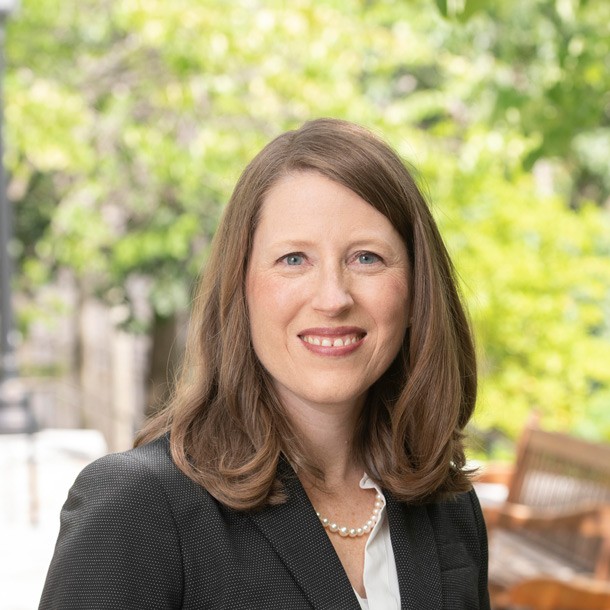
Melissa K. Uveges, Ph.D., M.A.R., RN
Melissa K. Uveges, Ph.D., M.A.R., RN, is an assistant professor at the Connell School of Nursing. She practiced as a neonatal intensive care nurse for almost two decades, most recently at Johns Hopkins Children’s Center in Baltimore, MD. Additionally, she trained for two years as a clinical ethics consultant at Montefiore Medical Center (Bronx, NY). Her research and work focus on improving the care of children with genetic conditions, and their families. Dr. Uveges received postdoctoral research training in genetics and ethics at Harvard Medical School after earning her Ph.D. in nursing at Johns Hopkins University and studying ethics, policy, management, and leadership at Yale University. She has served on hospital ethics committees and working groups at Advent Health Orlando (FL), Yale-New Haven Hospital (CT), Montefiore Medical Center (NY), and Johns Hopkins Hospital (MD). Currently, she is an Ethics Associate at Boston Children’s Hospital and a member of the hospital’s Ethics Advisory Committee (EAC).
Speakers, Facilitators, and Performers
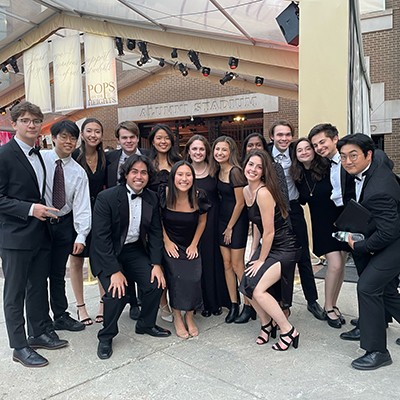
The Common Tones of Boston College
Founded in 2015, The Common Tones of Boston College is the newest a capella organization on campus. The group was created in order to bring the passion of Boston College voices into the heart of Boston. Versatile in repertoire and dedicated to serving the community, the Common Tones are a committed, energetic, and vibrant family of singers. The Common Tones volunteer at numerous sites in and around Boston, including Rosie’s Place, and also perform at BC-sponsored events.
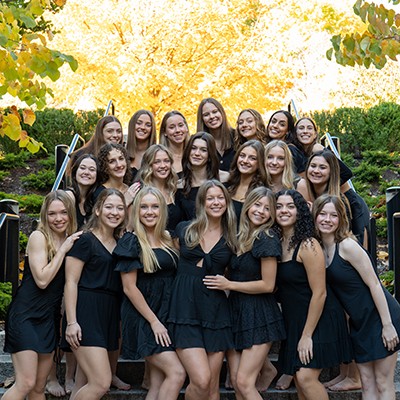
The Boston College Dance Ensemble
The Boston College Dance Ensemble (BCDE) is the oldest student-run dance group on campus, providing opportunities for approximately thirty talented dancers from a variety of backgrounds to rehearse, choreograph, perform, and share their love of dance. The dance ensemble is known for its dedication, energy and diversity of talent. Performances showcase styles ranging from contemporary jazz and ballet to tap and hip hop. BCDE is proud to partner with the Campus School and to have the opportunity to collaborate with BC’s broader dance communitythrough bi-annual productions at the Robsham Theater and at other events around campus.
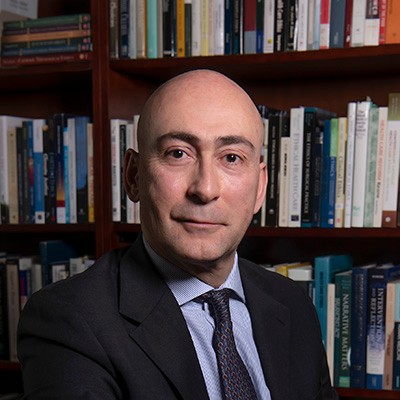
Andrea Vicini, SJ
At Boston College, Andrea Vicini, SJ, is Chairperson, Michael P. Walsh Professor of Bioethics, and Professor of Theological Ethics in the Theology Department and an affiliate member of the Ecclesiastical Faculty at the School of Theology and Ministry. M.D. and pediatrician (University of Bologna), he is an alumnus of Boston College (S.T.L. and Ph.D.) and holds an S.T.D. from the Pontifical Faculty of Theology of Southern Italy in Naples. He taught in Italy, Albania, Mexico, Chad, and France. He is co-chair of the international network Catholic Theological Ethics in the World Church, as well as lecturer and member of associations of moral theologians and bioethicists in Italy, Europe, and the US. His research interests and publications include theological bioethics, global public health, new biotechnologies, environmental issues, and fundamental theological ethics. During the academic year 2015–2016, he had a research fellowship at the Center of Theological Inquiry in Princeton, NJ, on the Societal Implications of Astrobiology. Since 2021 he is a Fellow of the Collegium Ramazzini. Recent publications include three co-edited volumes—Reimagining the Moral Life: On Lisa Sowle Cahill’s Contributions to Christian Ethics (2020), Ethics of Global Public Health: Climate Change, Pollution, and the Health of the Poor (2021), and The Rising Global Cancer Pandemic: Health, Ethics, and Social Justice (2022).
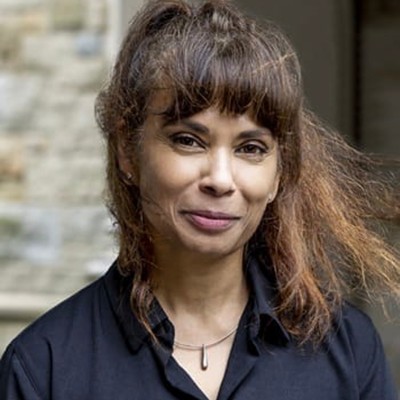
Kalpana Seshadri
Dr. Seshadri is a professor in the Department of English. She specializes in Postcolonial Studies and theories of contemporary Globalization and relations of power. She teaches courses pertaining to British colonialism, colonial literature and non-western literatures in English. Her research field is the Philosophy of Race and inequality, focusing on questions of subjectivity, ethics, language and law. Courses include Global Englishes; Debates and Issues in Postcolonial Studies; British Literature and Postcolonial Criticism, Fictions of Empire. Her current research deals with the inter-relation of the consumer driven global economy with the non-human.
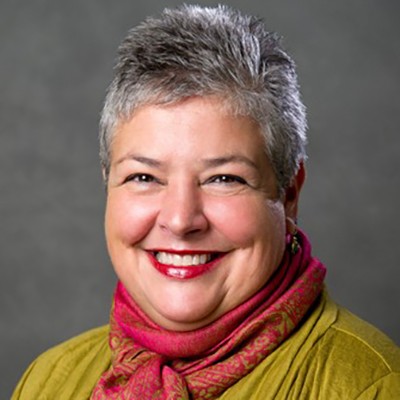
Filippa Anzalone
Filippa Marullo Anzalone has served as a professor and the Associate Dean for Library and Technology Services at Boston College Law School since August 2002. Anzalone has taught mindfulness for lawyers, semester in practice, advanced legal research, and an art law seminar. Legal education, mindfulness, student formation, and leadership are of particular interest to her.Before joining Boston College Law School, Anzalone worked at Northeastern University School of Law School for almost eleven years as Professor of Law and Director of Information and Research Services. Prior to entering academic law librarianship, Anzalone was the director of the law library at the Boston law firm of Bingham, Dana and Gould (now Bingham McCutchen). She also worked as a research librarian at Dike, Bronstein, Roberts, Cushman & Pfund, a public library administrator at the Cambridge Public Library, and the head children's librarian at the Medford Public Library. . She has served as a consultant to a number of law school libraries and lectured both in the United States and abroad on leadership, mindfulness, and management issues. Anzalone received a B.A. from Smith College in 1975, a M.S.L.S. from Simmons College in 1977, and a J.D. from Suffolk University in 1985.
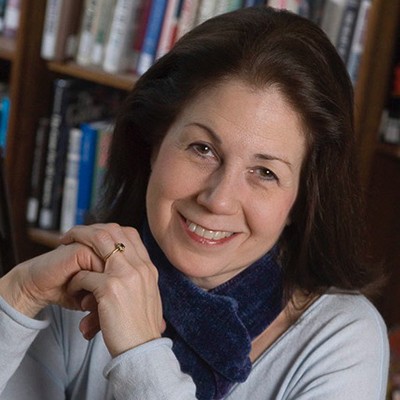
Clare Dunsford
After serving as an associate dean in the Morrissey College of Arts and Sciences at Boston College for twenty years, Clare Dunsford taught in the B.C. English Department as a Visiting Associate Professor for the past 3 years teaching Disability Studies and Medical Humanities among other courses. She currently teaches part-time in the Department. Dunsford is the author of a memoir about her experience as a mother of a boy with fragile X syndrome, Spelling Love with an X: A Mother, a Son, and the Gene That Binds Them (Beacon Press, 2007). Chapters from the book have appeared in X Stories: The Personal Side of Fragile X Syndrome (Flying Trout Press), Love You to Pieces: Creative Writers on Raising a Child with Special Needs (Beacon Press), the first literary collection on raising special-needs children, and in the winter 2006 issue of The Kenyon Review, an issue dedicated to the Human Genome Project. She is also a contributor to The Story Within: Personal Essays on Genetics and Identity (Johns Hopkins University Press, 2013), edited by Amy Boesky.
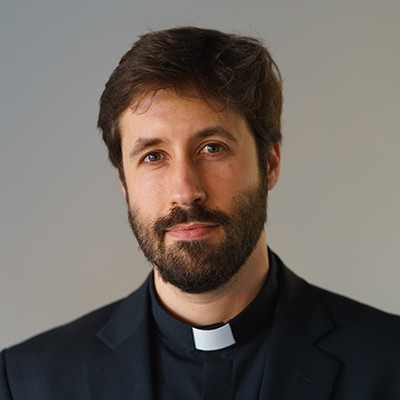
Jaime Espiniella García, SJ
Jaime Espiniella García, SJ, is a Jesuit from Spain and currently a graduate student in the S.T.L. program in moral theology at the School of Theology and Ministry at Boston College. His focus is on end-of-life issues, exploring palliative care from the perspective of social justice. He received his S.T.B. theology degree from Comillas Pontifical University, a B.A. in philosophy from the Pontifical University of Salamanca, and a B.S.N. from the Red Cross School of Nursing of the Autonomous University of Madrid.
Campus Map and Parking
Parking is available at the nearby Beacon Street and Commonwealth Avenue Garages.
Boston College is also accessible via public transportation (MBTA B Line - Boston College).
Boston College strongly encourages conference participants to receive the COVID-19 vaccination before attending events on campus.
Cases of Moral Distress
A) A 70-year-old woman is admitted to an Oncology unit with advanced cancer. She quickly becomes deconditioned, unable to feed herself, and non-interactive. She is cachectic and has a large sacral pressure ulcer. The nursing staff feel strongly that this patient should have her care transitioned to a focus on comfort, however the patient’s oncologist is not in agreement. He argues that the patient was a “fighter” and has not tried immunotherapy. He offers this to the family, and they readily accept. The nursing staff are frustrated because they “know where this is heading” but do not feel as though the Oncology team is listening to them. They feel they are torturing the patient.
B) A 55-year-old Spanish speaking woman is admitted after sustaining fractures to her legs and spine after a fall from a tree. She has had surgery and now requires rehabilitation before she is safe to return home. The medical team discovers she has no medical insurance, and therefore cannot be discharged to rehab. They consult Social Work for guidance. The Social Worker feels conflicted, because although he knows the best possible care would require rehabilitation, this is not something this patient can afford. He knows that if she were a patient with more financial resources, she would be receiving superior care and would likely have a better functional outcome.
C) Mr. Jones is a 50-year-old man who is dying of respiratory failure due to a complex case of COVID 19. His spouse, James, is having difficulty coming to terms with this fact and thus far has not been open to discussing comfort-focused care. He has often focused on the idea that things are “in God’s hands” and emphasizes his belief that a miracle will occur. After a prolonged and at times contentious discussion with the medical team, James agrees to transition Mr. Jones to comfort-focused hospice care. The medical team calls the Chaplain to visit with James after this decision and provide support. When the Chaplain arrives, James is distraught and tells her that he felt “bullied” into making this decision. The Chaplain wants to be supportive of James but is now sure how to communicate this new information to the medical team.
D) Jane is a new biology teacher at a private high school in an urban district. There are many students with financial insecurity and complex social dynamics at home. One of her students, Sam, has struggled academically in Biology. Jane feels she has helped him to the extent of her abilities, including spending time with him outside of class and giving him extra attempts on assignments, however he still hasn’t achieved a passing grade. She worries that a more experienced teacher would have had a greater skill set to be able to help Sam. If Sam fails her course, he will need to participate in summer school which is a financial burden to his family due to the cost, and he may lose scholarship money. Jane needs to decide whether he should pass or fail her course.
Contact
Please contact Kate Jackson-Meyer if you have any questions: kjacksonmeyer@fas.harvard.edu

